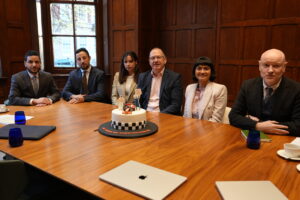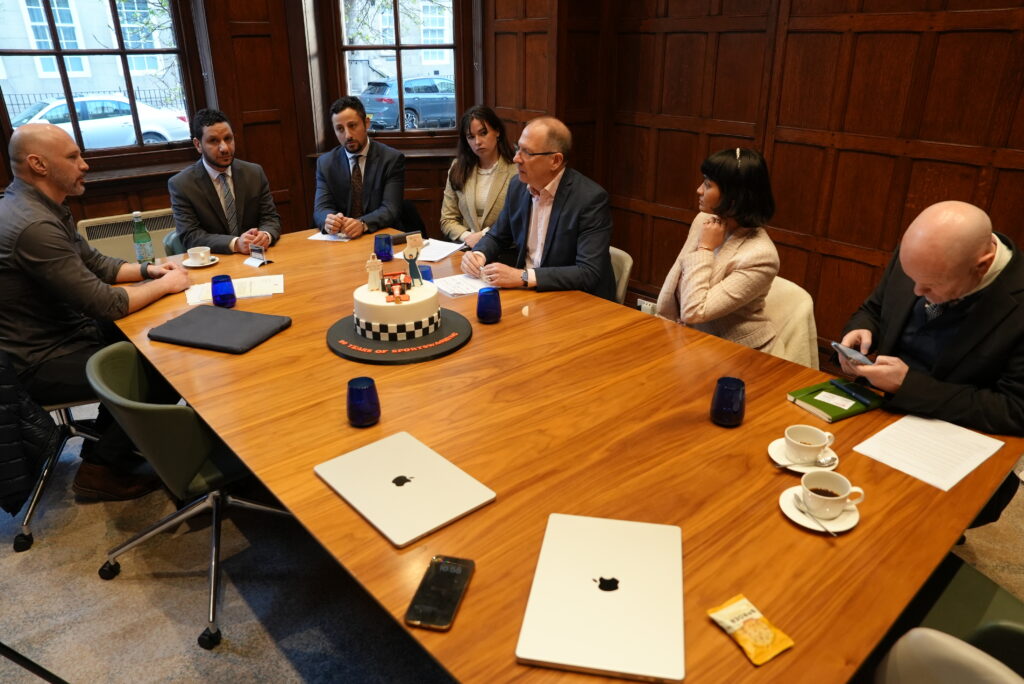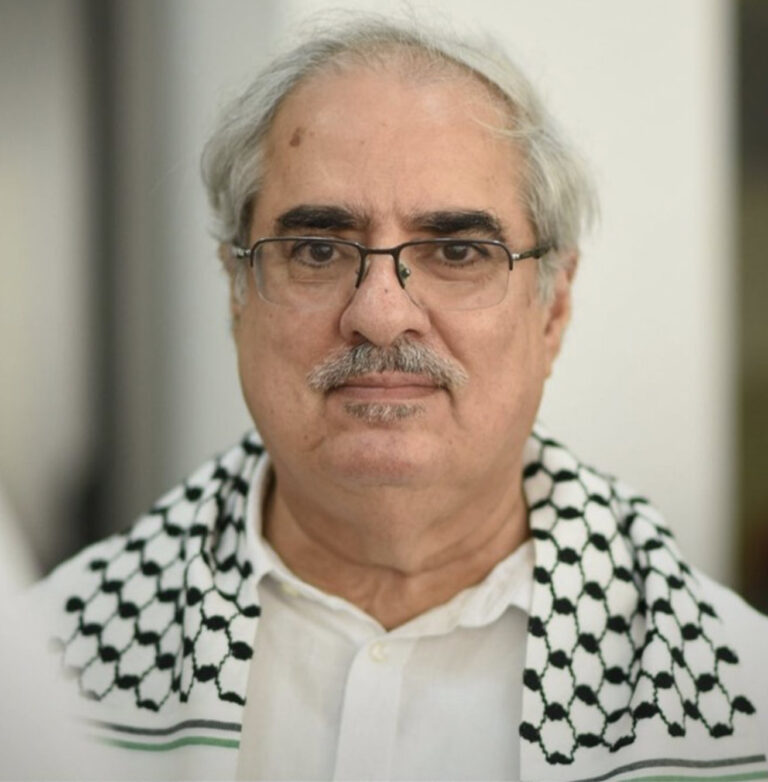London – On Monday, 26 February, the Bahrain Institute for Rights and Democracy (BIRD) hosted a press conference marking “20 Years of F1 Sportswashing in Bahrain” ahead of the Bahrain Grand Prix this weekend.
The speakers all sat around a cake “celebrating 20 years of sportswashing” with a race car and Bahraini protesters revealing the true cost of F1.
BIRD announced a joint letter by 28 rights groups and trade unions sent to F1 CEO Stefano Dominecali yesterday, which states that:
“Despite assurances provided by F1 that they “have always been clear with all race promoters and governments […] worldwide, including Bahrain, that [they] take violence, abuse of human rights and repression very seriously”, Bahrain has continued to systematically violate citizens’ rights, repress dissent, silence journalists, and routinely perpetuate violence, including torture and police brutality.”
The full letter can be viewed here:
Sayed Ahmed Alwadaei, Advocacy Director at the Bahrain Institute for Rights and Democracy (BIRD), commenting:
“Although F1 claims that its presence has been a ‘force for good’, Bahrain’s human rights record over the past 20 years has become significantly worse, with a major setback in 2011 when the mass protest movement was crushed and the race was cancelled.
Bahraini activists and their families face serious reprisals during F1 races as authorities crack down on those who may embarrass them or draw attention to their human rights violations.
Lewis Hamilton showed how the sport can have a positive impact when he spoke out about human rights and the plight of political prisoners in Bahrain. F1 management must follow suit instead of covering up Bahrain’s abuses.”
Lottie Casey, Policy and Advocacy Associate at the Bahrain Institute for Rights and Democracy, said:
“F1 should not have their cake and eat it too. The time for them to realise that they cannot rake in profits while Bahraini citizens suffer, is 20 years overdue.”
Lord Scriven, Member of the House of Lords, addressed the press conference:
“I wrote to F1 requesting evidence of any due diligence that they have conducted on Bahrain. They did not even have the courtesy to respond or acknowledge my letter. So really the question is: what are they hiding?
It is not 20 years of a modern classic as they claim but 20 years of misguided collusion between F1 senior management and the Bahraini government.”
Brian Dooley, Senior Advisor at Human Rights First, stated:
“We know that when F1 brings its show to Bahrain it’s bad news for human rights, and it helps sportswash the regime. As we used to say about apartheid South Africa, you can’t have normal sports in an abnormal society.
This year we’re urging the F1 organisation not to allow Bahraini Prince Nasser to present the Grand Prix trophies again. We have recommended to the U.S. State Department that they sanction him on the basis of credible allegations of torture against him, and not allow him into the U.S. At least while the State Department considers the case he should be kept far away from all the F1 events.”
Zaki Sarraf, MENA Caseworker at Reprieve
“The F1’s presence in Bahrain provides convenient cover, allowing the kingdom to carry out egregious human rights violations whilst the glamour of F1 events distracts away from the reality on the ground. The reality is that the Bahraini authorities systematically torture prisoners and torture-tainted confessions are relied upon to sentence individuals, such as Mohammed Ramadhan, to death. If the F1 truly wants to be a force for good, as they claim – concerted action is required, not empty statements
Lottie Casey read out the words of Hajer Mansoor, who has been the subject of recent reprisals after her house was raided and her son arrested during F1 testing last week. Hajer was amongst four protesters who were arrested and threatened after staging a protest during the race last year.

Hajer Mansoor’s statement:
“F1’s claims that it has been a force for good serves as a smokescreen to veil our reality as Bahraini citizens who are subjected to a host of abuses. I was unlawfully arrested and threatened last year for peacefully protesting during the Grand Prix, and this year, my son is bearing the brunt of the Bahraini government.
While F1 was staging its testing last week, Bahraini authorities raided our home and terrorised us. My son, Sayed Hashim, was arrested without a warrant and is now in detention on alleged protest activities, some of which date back to last year. He has been abused, beaten up, spat on, and harshly interrogated. He remains imprisoned and we are fearful of his fate.
To me, raiding my house and arresting my 20-year-old son in the lead up to the Grand Prix, is a clear message from the Bahraini authorities that we dare not even think about protesting this year.”
F1 responded to request for comments from PA:
“For decades Formula One has worked hard to be a positive force everywhere it races, including economic, social, and cultural benefits.
Sports like Formula One are uniquely positioned to cross borders and cultures to bring countries and communities together to share the passion and excitement of incredible competition and achievement.
We take our responsibilities on rights very seriously and set high ethical standards for counterparties and those in our supply chain, which are enshrined in contracts, and we pay close attention to their adherence.”





